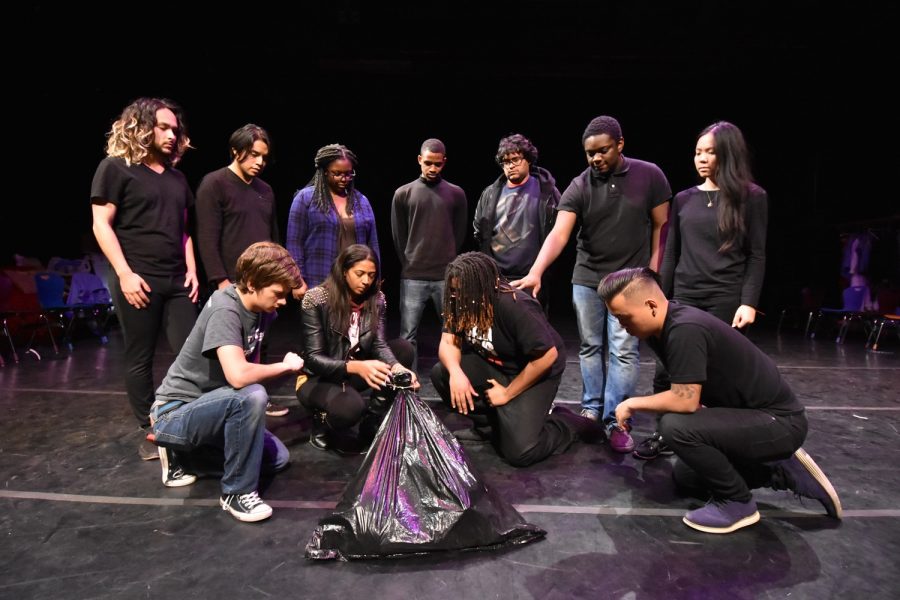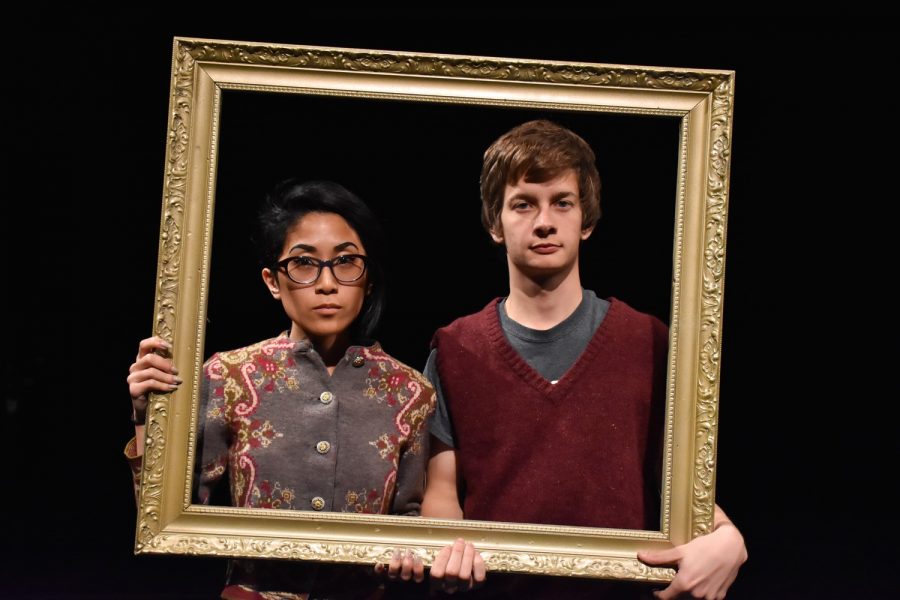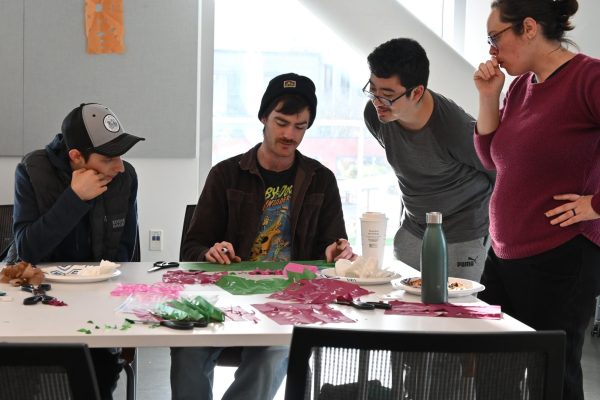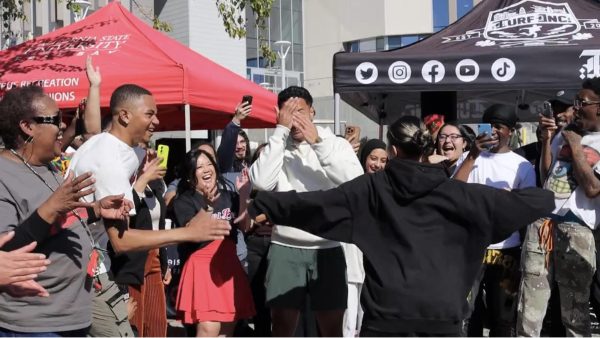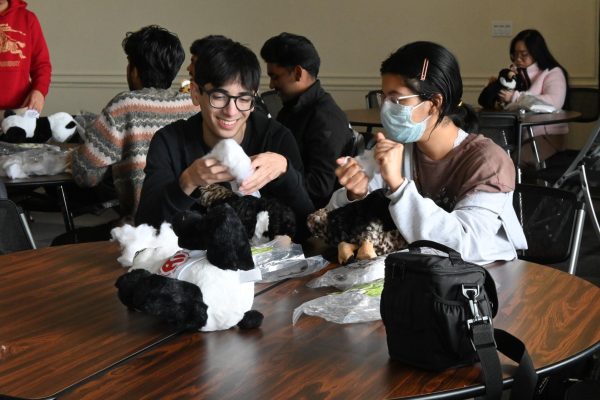East Bay theater brings Ferguson to campus
As the lights dimmed and the music died down at a Dec. 9 performance of “CSU Ferguson” at Cal State East Bay, the performers made it clear that the title of this performance was meant to bring the world of police brutality to our campus frontlines, because we as college students of color are very real targets of white America.
Put on by Cal State East Bay’s Department of Theatre, CSU Ferguson ran from Dec. 8-11 at the Hayward campus, was directed by theater professor Ann Fajilan, and was the last show of the season.
The production tackled topics of race, oppression and unjustified police killings of unarmed people of color, and there were performances equally as jarring on sexuality, mental illness, inner city decay, corruption, domestic abuse and gender norms. Whether it was dance, spoken word, skits, ensemble, poetry, the performers were in your face in their expressions, both literally and figuratively.
A particularly memorable act, a poem called “Capitalism,” brought to life by student Benny Avalos, began with the words “I am your pimp, bitch,” repeated throughout, and was spoken from the point of view of capitalism to the American people. There was a crew member picking up and bringing him clothes, as he undressed and dressed in flashier and flashier “pimp wear.” The crass lyrical metaphors that composed the poem went on to describe just how explicitly demeaning the greatest country in the world has brought its people to its knees, pun intended. It evoked a feeling of shame and disgust.
Towards the end of the poem, as Avalos put on his last layer of fur coat and adjusted his pimp hat, he reminded audience members how he — capitalism — will ejaculate to the cries for help, in the faces of the hungry and poor. It was almost surprising how hand-in-hand the descriptions of raunchy acts fell so in line with the acts of the corrupt. Like many of the acts that would follow, the words thrown at the audience were raw with anger and pain, but ultimately resilience.
Many of the performances utilized a call-and-response approach, an artistic form deeply embedded within African American roots, in which the call, being spoken by the performer or speaker, is given resonance by the response of the viewer. An act in which the response of the audience was most apparent, was poet Julian Curry’s “Niggers, Niggas & Niggaz,” performed by Sid, where the words would be repeated 21 times within the short span of the poem. As a line of the poem states, “And hopefully this Nigga, Nigga, Nigga poem is making you uncomfortable,” the crowd visibly shifted in their chairs, giving the words all the more power, and even moving some to tears.
“CSU Ferguson” was entertaining, and the material was immensely deep and personal, putting on stage the truths our fellow peers or we ourselves face. At one point, a performer asked the audience to put their hands up, and prompted us to yell “Don’t shoot!” He proceeded with his monologue and for the duration of it, a painstakingly long five or so minutes, urged us to keep our hands in the air, as many of our fallen brothers and sisters have before taking their last breath.
“I wanted to create a space for students to validate their reactions, to unlearn their parent’s fears and to declare their own, beautiful, insightful, empathetic, angry, energized spirit,” said Fajilan. “We need to put a face onto the faceless hoodie icon.”
The show was meant to be uncomfortable, as the performers shed light on issues considered too taboo to discuss and create a dialogue about. But in that discomfort, Fajilan hoped that the audience left the theater that night more humbled and a lot more aware.


